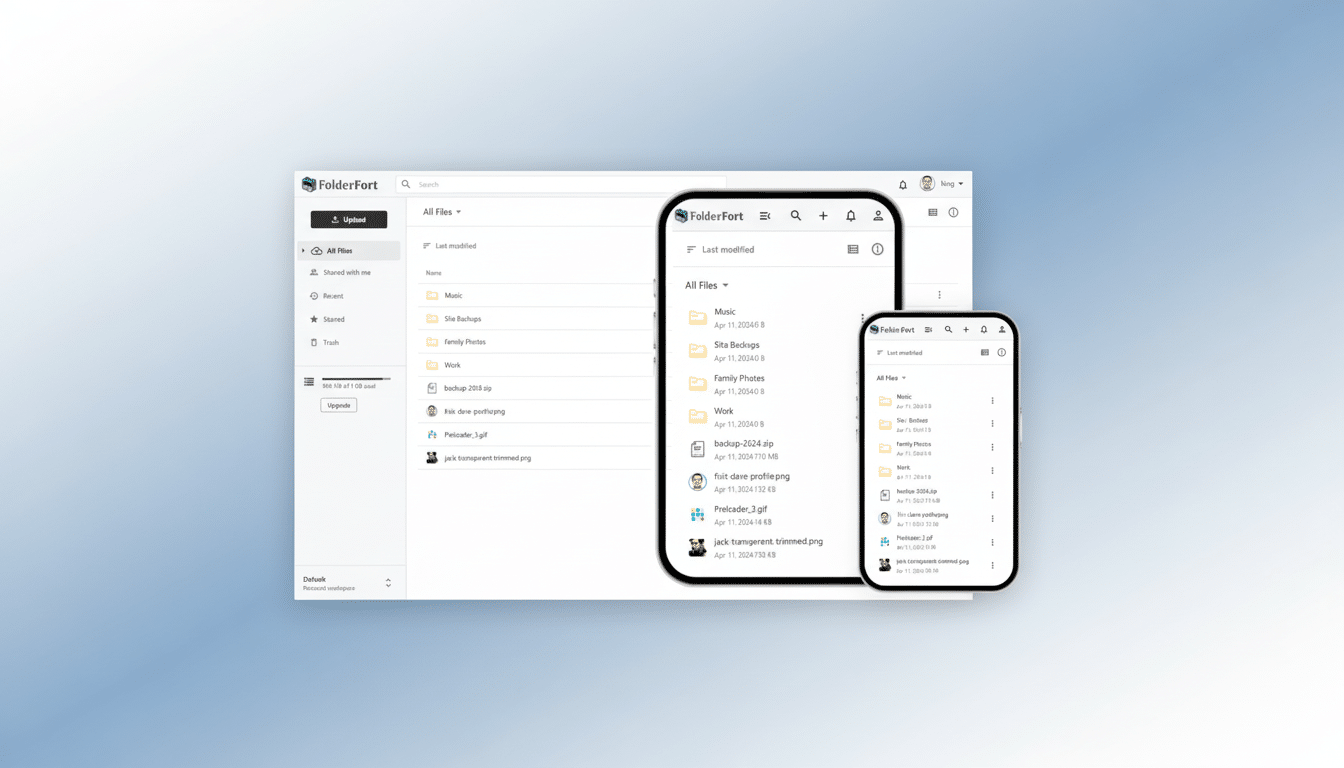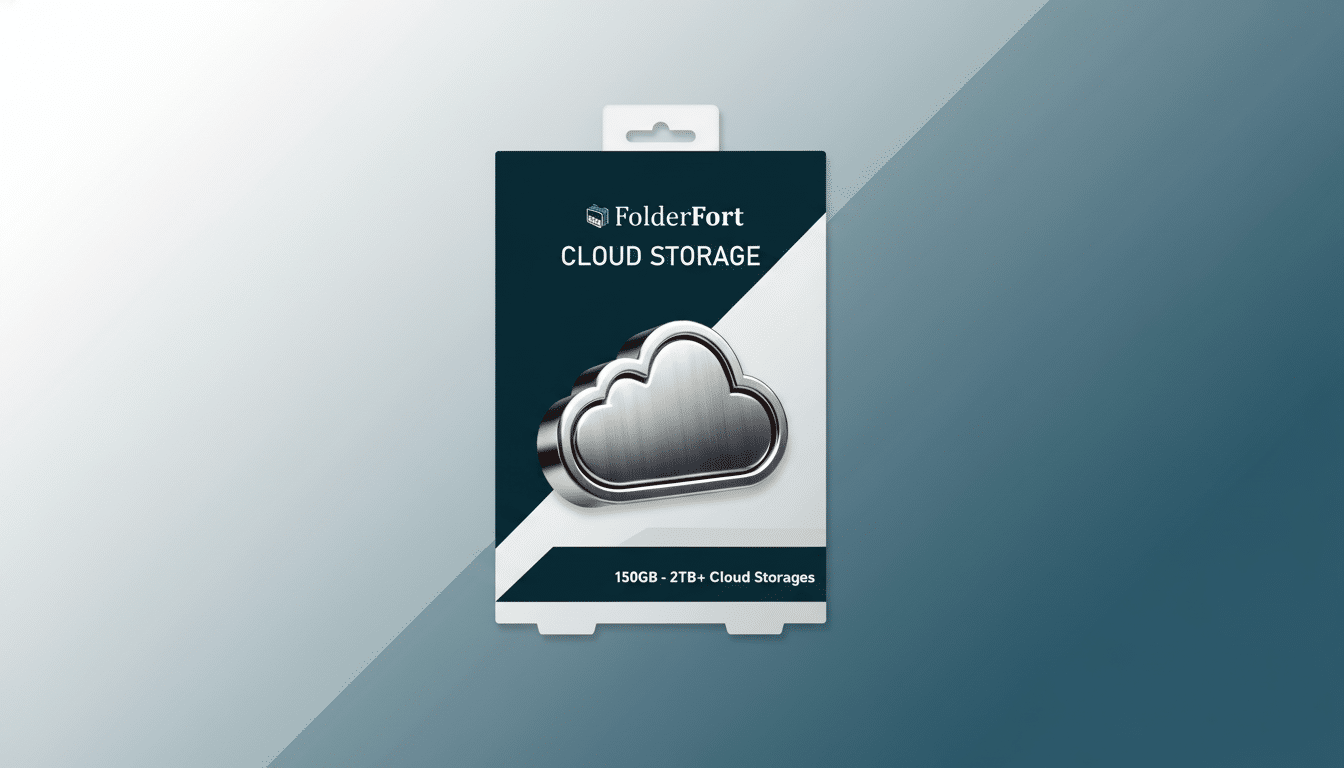If you live online, this is the rare storage-and-security offer that actually moves the needle. A limited-time 2026 Cloud & Privacy Bundle combines FolderFort’s 1TB cloud storage Pro plan with a lifetime subscription to OysterVPN for a single $59.99 payment, advertised against a $598.97 MSRP. April 12, 6:55 a.m. CT—it’s back again. For power users, students, and remote professionals juggling files across devices, it’s a compelling value—provided you understand the trade-offs of any “lifetime” deal.
What you get in the 2026 Cloud & Privacy Bundle deal
FolderFort’s Pro plan surrounds 1TB of encrypted, browser-based storage surfaced to operate on any modern device without installing a client. The service prefers quick sharing, cross-platform access, and the offer describes it as “unlimited users,” a boon for teams collaborating across folders. The back end grips Backblaze-supported encryption, meaning your data is encrypted at rest and in transit but accessible from anywhere you sign in.

OysterVPN includes AES 256-bit encryption, a stated zero-logs policy, servers concealed in 33+ countries, and connections on up to 10 devices simultaneously. There’s no data cap, and the provider focuses on streaming and area-switching use cases, which might appeal to travelers or anyone smothered in content limitations on public or hotel Wi-Fi.
Why this bundle’s price stands out versus subscriptions
The math is easy when compared to standard subscriptions. Google’s 2TB plan often costs around $99.99 per year, Microsoft 365 Personal with 1TB of OneDrive is around $69.99 per year, and Dropbox Plus at 2TB is often $119.88 per year billed annually. These costs, already high, skyrocket over three years and range from $200 to $300; a separate VPN subscription is required. A single payment of $59.99 for 1TB and a permanent VPN slot is rather unusual.

There’s also a more extensive trend. IDC projects that the global datasphere will “explode” into the hundreds of zettabytes, driven by high-resolution photos, 4K footage, and distributed employment. A straightforward question is, does anyone actually need more than 1TB? 1TB can safely store approximately 250,000 smartphone photographs at 4MB each or numerous hours of 4K footage. In many cases, it may be a hard upper limit for a creator or a family.
One extra caveat: the “lifetime” is the provider’s lifetime, not yours. Any investment that covers a long time is a vendor risk. This is true for the whole category, and shoppers must evaluate the provider’s history and export capabilities in case of migration. Security and privacy considerations should be well analyzed. On storage, check for encryption details, where the data resides geographically, and whether file versioning and recovery are supported. MFA is a requirement according to both the Cloud Security Alliance and NIST; when available, turn MFA on your account on day one. With the service’s support for granular sharing permissions, edit access should be limited to the fewest necessary.
- On VPNs, a zero-logs policy is only as good as its enforcement, and independent audits, transparency reports, and clear ownership disclosures bolster that. VPNs help ensure surveillance and insecure networks don’t undermine you. Still, they can’t help against phishing, and performance varies most greatly by protocol and distance. You’ll see better throughput on modern protocols and nearby servers—always test speeds before relying on a single location for streaming.
Who this bundle is best suited for across user types
- Remote workers and freelancers sharing files with clients might find a browser-first storage tool with broad sharing helpful.
- Students and families might appreciate a private hub for coursework, photos, and tax scans rather than tying everything to one operating system.
- Travelers or digital nomads who frequent hotels and cafés might like the VPN: hotels and cafés will see your traffic in the clear, but the VPN ensures your personal logins don’t come with their unpredictable public Wi-Fi.
- Small teams with light archival needs might find 1TB enough, especially if they offload older archives to cold storage. But if your workflow involves raw 6K video or a terabyte of game captures each month, you’ll fill 1TB quickly—think about how you’ll manage storage tiers or rotate projects.
How to get the most out of the cloud storage and VPN
- Follow the rule of three: keep three copies of your data on two different media and one offsite. Use the cloud drive as your offsite copy, keep a local external drive for fast access, and keep your working files on your main device.
- Turn on MFA and account alerts, set up automatic folder sync in the critical directories, and, if available, enable file versioning to roll back an accidental edit or ransomware that’s taken over your files.
- For the VPN, create profiles for home, travel, and streaming, and benchmark a few nearby servers to lock in the fastest defaults for everyday use.
Bottom line: As cloud storage prices continue to creep up and privacy tools become table stakes in a connected world, a $59.99 one-time bundle for 1TB of encrypted storage and lifetime VPN sub is disruptive in a good way. It won’t be right for every power user and lifetime terms always merit a skeptical eye, but using a significant fraction of the Internet means living online, and living online means staying organized and ensuring you have a layer of protection that’s meaningful to your daily patterns.

